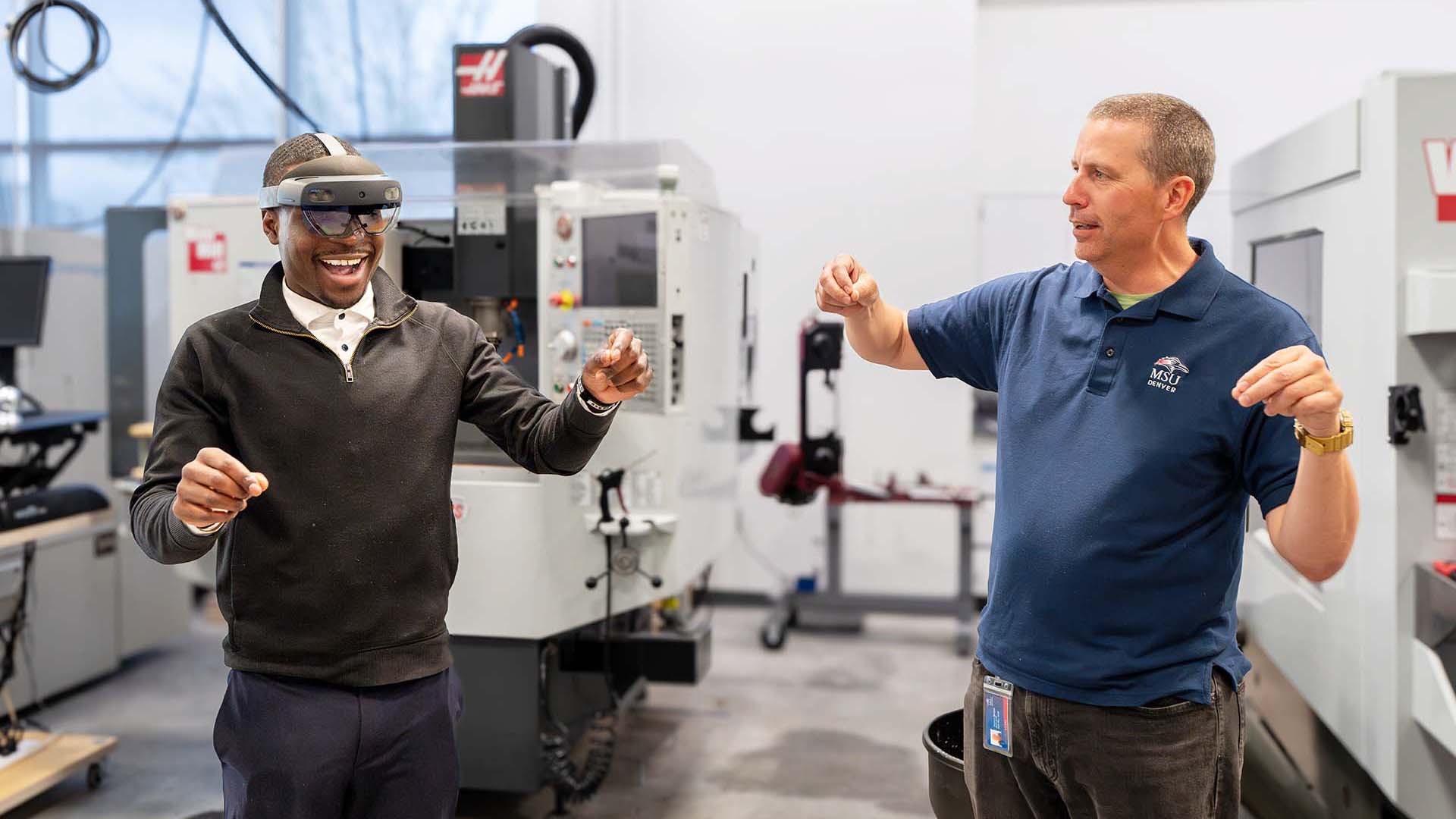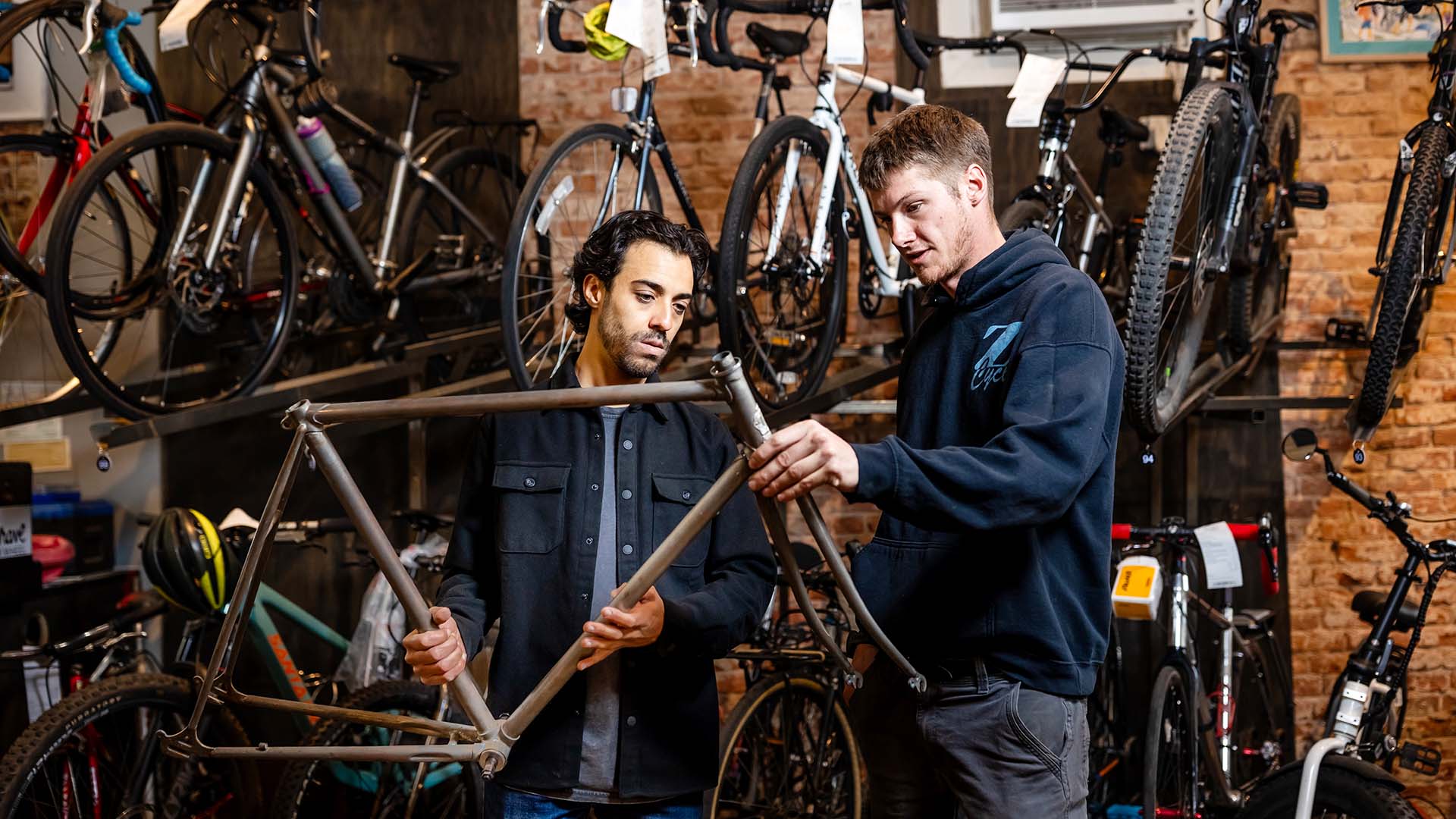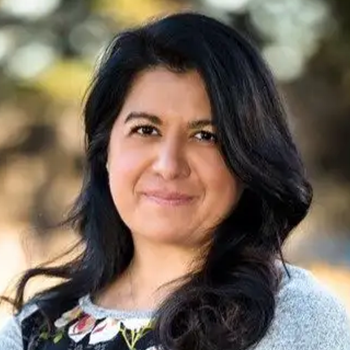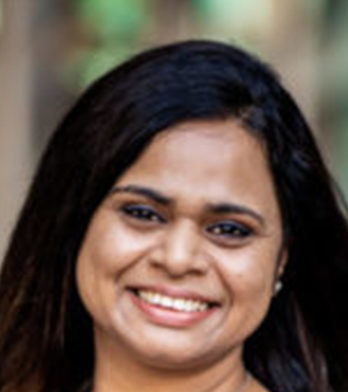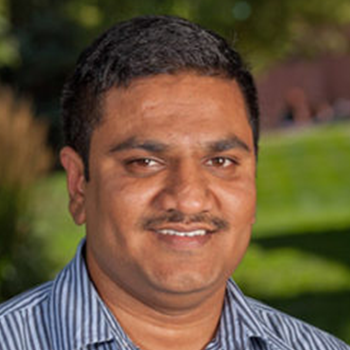Engineering meets influence in STEM policy program
Three students from MSU Denver are selected for the first Colorado Science and Engineering Policy Fellowship.
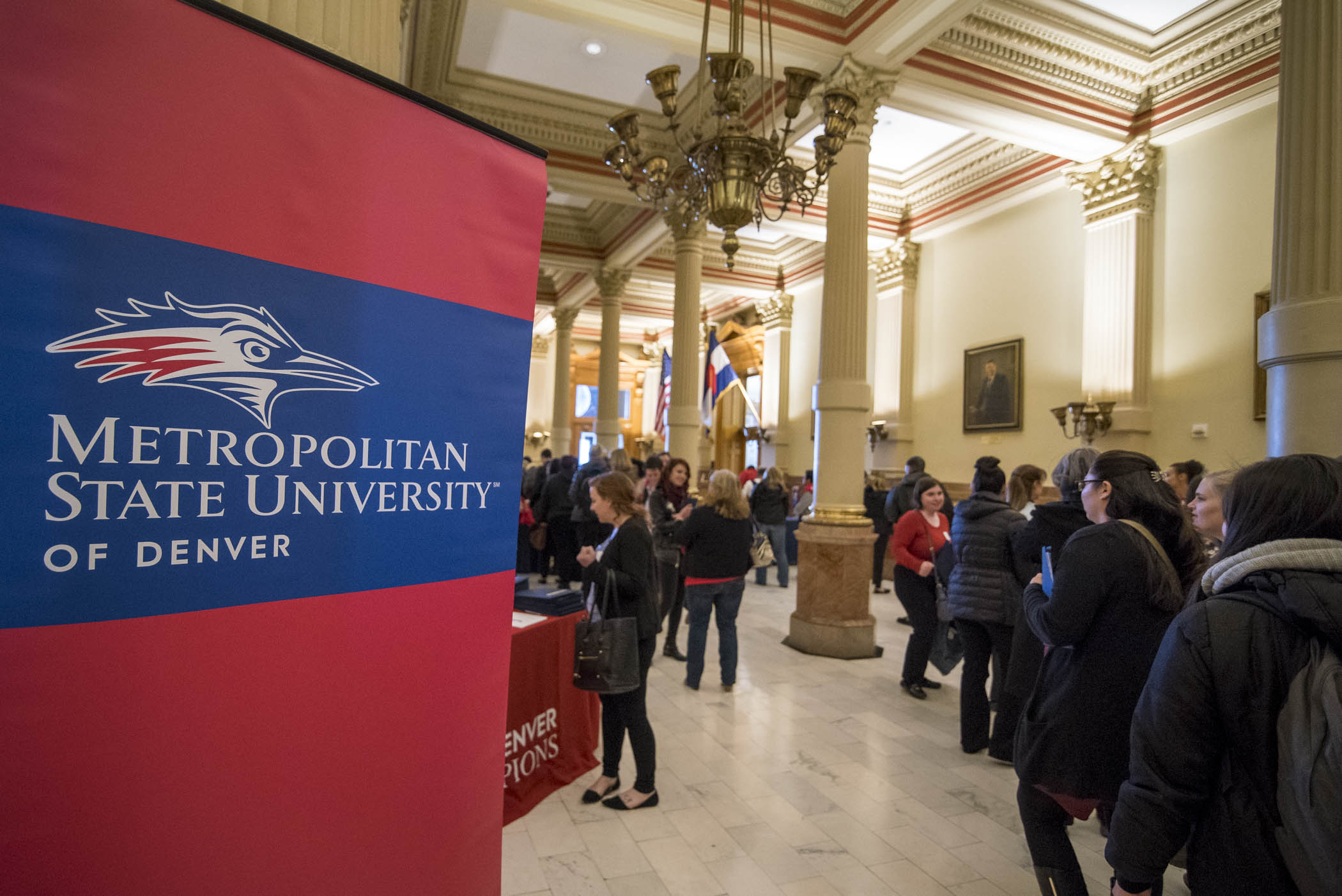
Michael May’s life took a detour a couple of years ago when he broke his femur into several pieces. The physical rehab process gave him time to take a step back into what he calls a “new lease on life.” May had a degree in political science and philosophy and a resume full of technical jobs when he stumbled across a new degree program at Metropolitan State University of Denver and decided to go back to school.
Sustainable systems engineering is exactly the perspective you’d imagine a philosopher would bring to engineering – a holistic approach to problem-solving that examines the relationship among connected parts. At MSU Denver, that means course work from a number of disciplines: civil, mechanical and electrical engineering technology as well as atmospheric science, political science, business and communication.
May’s background and current studies made him a prime candidate for the inaugural Colorado Science and Engineering Policy Fellowship. The program is a collaboration of Colorado Reps. Chris Hansen, D-Denver, and Bob Rankin, R-Carbondale, designed to expose students in science, technology, engineering and math to public-policy challenges in STEM fields. May and two other MSU Denver students are among 13 fellows from five Colorado universities who will complete a legislative boot camp, meet with leaders in government and private companies, and visit sites where technology and policy intersect, such as the National Wind Technology Center or the Colorado Broadband Data and Development Program. The eight-week program begins May 21.
“Our goal with this fellowship is to bridge the gap between STEM learning in Colorado and the policymaking process,” Hansen said. “The candidates from MSU Denver, as well as our other partner institutions, wowed us with their ideas and energy. We couldn’t be more excited about seeing them put their ideas into practice over the summer.”

Applicants were required to propose policy issues they would be interested in researching. May, taking the systemic approach, researched public policy itself as part of his application process and had difficulty in finding public policy, as different state departments have their own regulations and white papers in different places.
“I was very frank that I didn’t have a particular policy that I was going to propose but that I needed to know more about the nuts and bolts of what’s going on,” May said. “I’m hesitant to offer up some sort of policy change without knowing more about it. That’s very much the ‘systems’ mentality – look at the whole picture and then figure out where the levers are in the system that you can change.”
Adam Garnhart, another sustainable systems engineering major, and Joshua Kenning, a mechanical engineering technology major, each identified policy areas influenced by Colorado’s growing population. Garnhart, who is also a research intern at the National Institute of Standards and Technology in Boulder, hopes to work toward policy on net-zero-energy buildings, which produce as much energy as they require. Private developers have constructed net-zero buildings in Colorado, such as homes in Stapleton or the Boulder Commons mixed-used development that opened in 2017, but there are no statewide policies influencing the practice.
“Energy demands in cities are going up and up and up. Even if populations stay the same, we’re demanding more and more energy,” Garnhart said. “We need to accommodate that somehow, and net-zero policy is one strategy to help alleviate stress on the grid.”
Kenning, who has a professional background in manufacturing, said issues such as transportation and air quality can’t be adequately addressed unless the people coming up with solutions can influence the public.
“All these people are moving here, so we have to scale our infrastructure. How do we fund that? How do we allocate those funds? What are the alternatives?” Kenning said. “I think it’s incumbent on us to make an effort to influence public policy by being more involved in the process. The best solution is worthless if engineers can’t implement it for political or financial reasons.”
Aaron Brown, associate professor of mechanical engineering technology, coordinated the recruiting of applicants from MSU Denver with Jennifer Capps, interim dean of the College of Professional Studies. Brown credits the growth of engineering on campus, in number of students and quality of programs, for landing three Roadrunners in the summer fellowship. He said there were fewer than 100 mechanical engineering students at MSU Denver a decade ago but that there are now 850 declared majors. The new sustainable systems engineering program will likely have its first graduate in December.
“We’re desired by employers,” Brown said. “Employers in the area want to hire our students because of things like additive manufacturing, advance manufacturing, all these things we’ve developed in the mechanical program. We’ve really made a name for ourselves.
“Part of the purpose of the sustainable systems engineering program is to train engineers not only in the fundamentals of engineering but in a more well-rounded way that includes things like policymaking. This fellowship is a perfect match for our skill set.”


